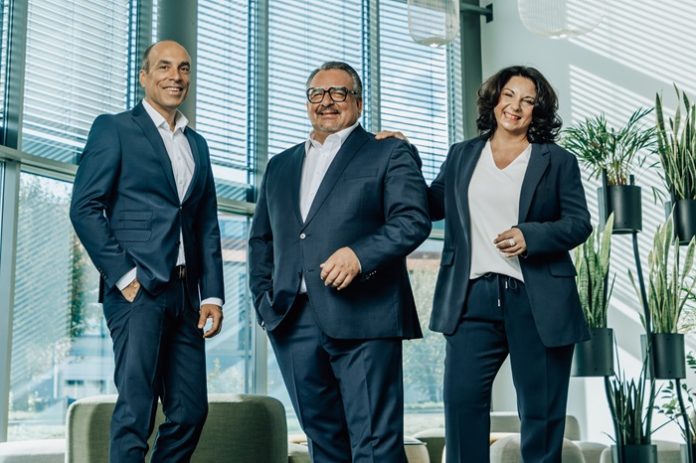
Mosca GmbH, a family-owned company headquartered in Waldbrunn (Germany) and represented by 27 locations in 19 countries underlines its progress towards a sustainable operation with its third voluntary sustainability report for the fiscal year 2023. The report shows how Mosca is meeting global challenges with innovative solutions, expanded reporting standards, and consistent strategic integration of sustainability. Mosca offers a comprehensive portfolio of holistic, end-of-line transport packaging solutions that includes strapping machines, stretch wrappers and consumables.
“Our goal is to be the most sustainable supplier of complete end-of-line packaging solutions,” says CEO Simone Mosca. To achieve this goal, Mosca has further developed its sustainability strategy with new guidelines that have an impact on both the company itself and its customers and are presented in detail in the current sustainability report. A key element is the implementation of a dual materiality analysis. It will take into account both the environmental and social impacts of business activities as well as the financial opportunities and risks arising from sustainability issues.
“The dual materiality analysis helps us prioritize the issues that are critical to both our environment and the long-term success of our business,” says Mosca. Surveys of employees, suppliers, and customers as well as internal analyses will allow Mosca to accurately assess relevant issues and further refine its sustainability strategy.
Expanded reporting and product innovations
In 2023, Mosca made significant adjustments to improve the overall accuracy of its carbon footprint calculation. These comprise, among others, the inclusion of green electricity, the addition of more Scope 3 categories and an overall improved data base. Mosca will maintain its climate targets for the time being but will develop a detailed climate strategy and a comprehensive transformation concept in 2025.
By 2027 (baseline 2022), Mosca aims to reduce the amount of waste sent for recycling by 30 percent. Furthermore, Mosca has obtained the DIN EN ISO 14001 environmental management certification for 2023.
A highlight featured in the 2023 Sustainability Report is the development of the first strap made of 60 percent bio-based, ISCC+ certified material. At the same time, Mosca has increased the proportion of post-industrial recycled material in PP products to up to 40 percent in 2023. “For us, sustainability means combining innovative products with consistent action,” explains Ann Mertens, sustainability officer at Mosca. “We are setting new standards with our continuous research and development.”
Supply Chain: achieving greater transparency and accountability
Mosca uses EcoVadis assessments, which evaluate suppliers in areas such as environment, ethics and sustainable procurement, to improve transparency in the supply chain. Based on the results, one supplier has been the subject of exclusion. The audit of Tier 1 suppliers (those directly linked to the end producer) was implemented in 2024 and will be extended globally to other locations in the future.
Although not legally binding, the German Act on Corporate Due Diligence Obligations in Supply Chains plays an important role for Mosca. Simone Mosca proudly reports; “In 2023, we underwent a voluntary external audit and achieved an excellent result with 7.7 out of 10 points.” Mosca has also implemented a complaint management system to further strengthen compliance with the German Act on Corporate Due Diligence Obligations in Supply Chains.
Strategic integration of sustainable development
The newly established ESG Council drives environmental, social, and governance issues globally. It consists of three subcommittees – the sustainability and CSRD Committee, the Governance & Compliance Committee, and the Supply Chain Due Diligence Committee. Simone Mosca explains: “The ESG Council ensures that sustainability is embedded in all our businesses and decisions.”
The Mosca TechCenter, which opened in Waldbrunn in 2023, also plays a key role. It offers customers the opportunity to test packaging solutions under real transport conditions. The aim is to minimize the amount of packaging without compromising transport safety. “Our focus is not only on internal improvements, but also on helping our customers and partners be more sustainable,” says Simone Mosca.
A look into the future: partnerships and the circular economy
Mosca is optimistic about the future and continues to focus on clear and ambitious goals. An important milestone will be the publication of the first global sustainability report. Mosca has also initiated the creation of a European “Project Alliance Strap” (PAU) to strengthen cooperation within the industry. By 2030, Mosca plans to recycle 50 percent of its straps used in the EU. A pilot project with Interzero for the collection, processing, and recycling of strapping is already achieving initial successes. “Sustainability only works through strong partnerships and shared solutions,” concludes Simone Mosca.










